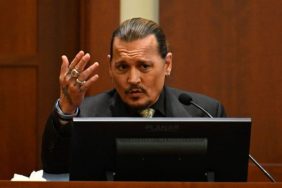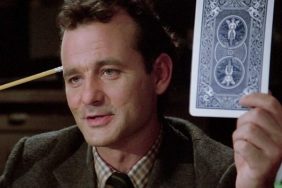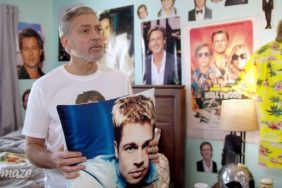F. Murray Abraham is in one scene in Inside Llewyn Davis, but when we saw him on the talent list for the film’s press junket, we were like, “Yeah, we want to interview F. Murray Abraham.” He plays an executive for whom folk musician Llewyn (Oscar Isaac) plays his song. With some 20 minutes to talk about one scene, we also had plenty of time to touch on Abraham’s role in Wes Anderson’s next film, The Budapest Grand Hotel, as well as all the legendary film roles Abraham has played. We had such a good time that Abraham (he let us call him Murray) was lamenting it was over. To us, in an increasingly fast paced industry often with-10 minute time slots, a full 20 with a Hollywood veteran was luxurious. Inside Llewyn Davis expands to wide release Friday.
CraveOnline: I understand the F. is for Frederick?
F. Murray Abraham: Yeah.
That’s nice to know because I don’t meet many Freds, let along Fredericks like myself.
It’s my father’s name.
It was always F. Murray, not Frederick M.?
It was Frederick M. for a while but I thought as an actor I wanted to have my name stand out. I wanted to do something to let people know I was alive. That’s all. It was just a thing. So when they ask me, I say, “The F is for famous.” And that always gets a nice response. That’s like a mystery but in fact everybody should have an initial. What the hell?
I have two middle initials, M. C.
That’s neat. Is it a family thing?
Yes, M is for Mark but C is Charig, my mother’s maiden name.
That’s nice. My granddaughter’s is for my wife’s maiden name. It’s a good idea.
How great was it to do a single scene for the Coen brothers?
Can you believe it? I had done plays with him. I did six of Ethan’s plays. They’re funny. I don’t know if you know them, but they’re really funny. They’re just fun. So that’s how I met them and we became friends. I don’t do a day’s work for anybody but for these guys…
It was only one day for that scene?
One day. Those guys are good, but I said, “I’ll do anything for them.” I think most actors feel the same way.
John Goodman certainly does, whether it’s a lead or just that scene in the car.
They’re loyal to him. That’s great. He delivers. When I read the script, I said, “Who’s doing that part?” That’s the one I wanted. When they said John I said, “Well, no one can do it better.”
Was it important in your scene that your character is not mean to Llewyn?
I don’t think he’s mean to him. He may seem insensitive but he’s giving him what he thinks is the goods, but I think he’s wrong about the man’s talent. It’s a beautiful song.
Did you hear the music in the scene or did they have to play the scene without the music in it?
Oh yeah, he sang live. I didn’t know he sang, because we’d worked together in Shakespeare before. The first time, I almost started to weep which isn’t right for that character, but I was really very moved by it. We shot it, I think, three times. At least three times and every time the guy delivered. He’s a real pro.
Was it hard to imagine passing on such great music?
[Laughs] No, considering where I come from. Rejection is part of our lives. If you can’t put up with it, you better get out because it ain’t going to change.
Is that Llewyn’s problem, that he’s so sensitive to rejection?
I don’t know if his problem particularly is any different from anyone who’s rejected. Anyone who has something to offer and no one seems to care, it’s hard because the self-doubt is a part of what begins to happen, and you cannot create if you’re in doubt. There’s no way you can do it. Struggling for that kind of courage that it takes, whatever it takes to put your heart on the line every time with the possibility each time that someone’s going to kick your heart in. That’s what happens. When you consider that about 90% of the actors in this country don’t work, I mean they’re out of work, between 87 and 90 percent all the time. That means that there are a lot of rejections.
And that’s just in SAG, right? There must be plenty of other non-union actors getting rejected too.
So what he represents, and how he responds to it is of course individual, but I can tell you that going to an audition, there’s sometimes an anger that you have to sit on, to hide, because you’re angry that you have to do this and angry that you’re probably going to be rejected, angry that why don’t they see who I am? Don’t they realize…? It’s worse when you really have a talent because you know it’s there. They don’t see it and you think, “Why are they in charge of my life when they don’t know what they’re doing?”
If you did plays with them, how is this your first Coen Brothers movie?
It’s fate. It’s the way it is. I don’t think you can question anything like that.







